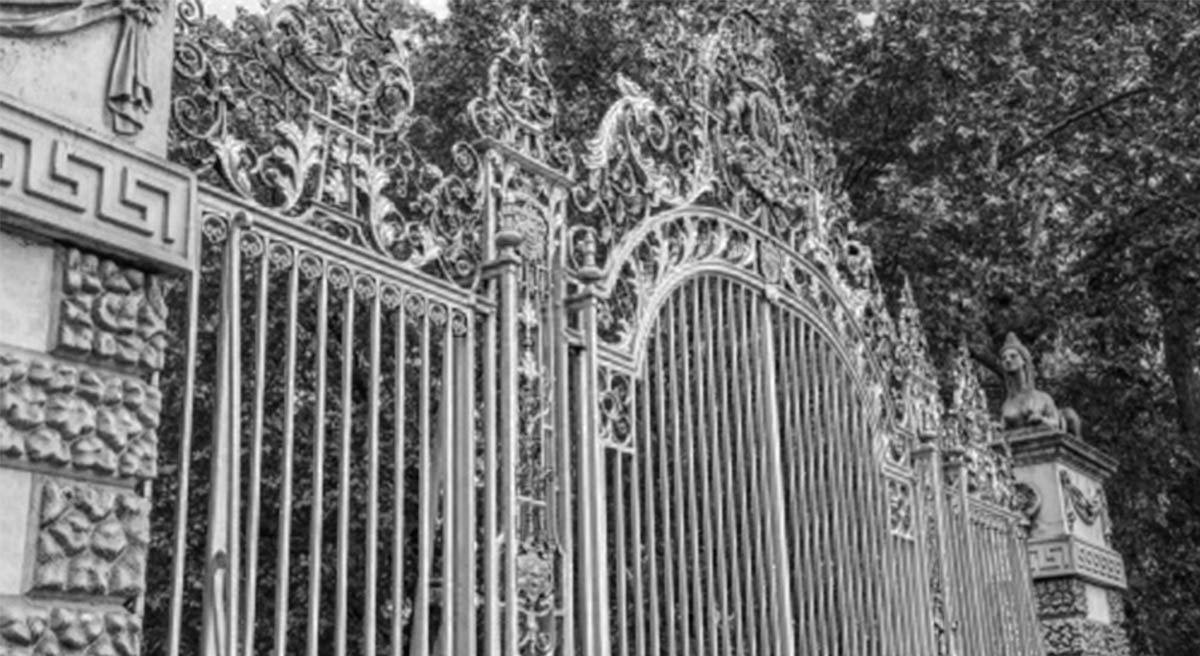On a glorious summer’s day, my quintessential London isn’t the tawdry brazenness of Piccadilly, nor the arch-celebration-of-invincibility, Trafalgar Square. It lies in the environs of Green Park tube station.
Across the broad boulevard of Piccadilly, overburdened with endless traffic despite restrictions stands the black, ornate wrought-iron gates of Green Park. Through their lacquered railings, a dirt path, originally for cantering horses, stretches across the tranquil parkland and ponds, populated by swans and ducks, to Buckingham Palace. To the right a fruit stand. its occupier, a gnarled centenarian sporting a brown tweed flat cap. He’s covered from neck to ankle in an olive-green apron, selling punnets of strawberries, apricots and, my childhood favourites, hairy green gooseberries—the sharpest tasting of all. To the left of the glistening black gates stands the lofty Ritz, lording over its domain.
Recently, I brought Alex, my elder son along to share my secret.
For me, an immigrant to the United Kingdom, The Ritz stood as a symbol of my ambitious goals. It was an inspiration that a Swiss immigrant could leave such a mark on British heritage. If Monsieur Ritz could do it, why couldn’t I?
To my son, raised a natural-born citizen of Canada, The Ritz represented an altogether different proposition. Alex whisked out his iPhone immediately, busily snapping photos at every angle of the hotel and its liveried yeomen—yet another quaint sight, to be taken pictures of and instantly transmitted to friends half-way across the world.
Words of an ancient and revered hymn, sung a thousand times at school morning assembly, rang out to me, “And did the countenance divine, shine forth upon our clouded hills? And was Jerusalem builded here, Among the dark satanic mills?”
I arrived in England at the age of five, an East Indian out of Africa, brought up by a working-class English family whose sole preoccupation was survival, not the propagation of British imperialism. Why that family took on the horrendous and thankless task of nurturing this strange, tiny, dark creature among them astonished me—the more so, as I grew up to understand the meaning of that responsibility, when I married and begot offspring of my own.
While qualifying as an accountant, I spent six months sharing a dark, grungy basement off Paddington Station in central London, hardly affording food, to pay my share of rent. It lasted six months before I was made redundant and forced to emigrate to Canada for better opportunity. Alex, having just graduated from one of the top universities in Canada, was now seriously considering a job offer in London for a year. Not for him the precarious life of sharing a dingy basement, but an address in Kensington fully paid for by his upcoming employer.
Taking our lives into our hands, Alex and I stepped onto the road, crossing Piccadilly towards the fruit stand.
The centenarian greeted us with a smile. “A punnit of gooseberries did yer say? ‘Ere y’are. Five paands please.”
Gazing at the man, I couldn’t help asking, ”How long have you been here?”
“Abaat a week.” Observing my astonishment, he relented. “Na mate, bin here since the days of Queen Victoria, Gawd bless her,” he winked.
I wondered if the costermonger knew that every year, Canada celebrated Queen Victoria’s official birthday as a national holiday—something unheard of in England, where she reigned supreme for 63 years at the zenith of Great Britain’s world might. Curious how the ties of generations of imperial settlers bound them closer to Britannia than her own natives. There, lay the juxtaposition of a colonial empire built, then grudgingly relinquished.
Was I any more comfortable in my role as a Canadian? While 1066 and All That—the Norman conquest of England lies ingrained in me, I can’t recall the number, names or spelling of the provinces of my second adopted country, Canada. Decades later, I still subscribe to BBC World Service and the English Premier League, shunning ice hockey, the lifeblood of my sons’ interests.
Like sponges, my boys have absorbed every aspect of Canadiana, proud that they, like the multitude of their friends, come from every corner of the world to become part of this great and wondrous land.
So much for England and its influence. My boys have become Canadians before my very eyes. I am the last of my breed of struggle and sacrifice.
At times, a tiny voice within me whispers “But you knew they were always Canadian. Weren’t they born and bred in Canada? Did they know any other life? Why so shocked?”


